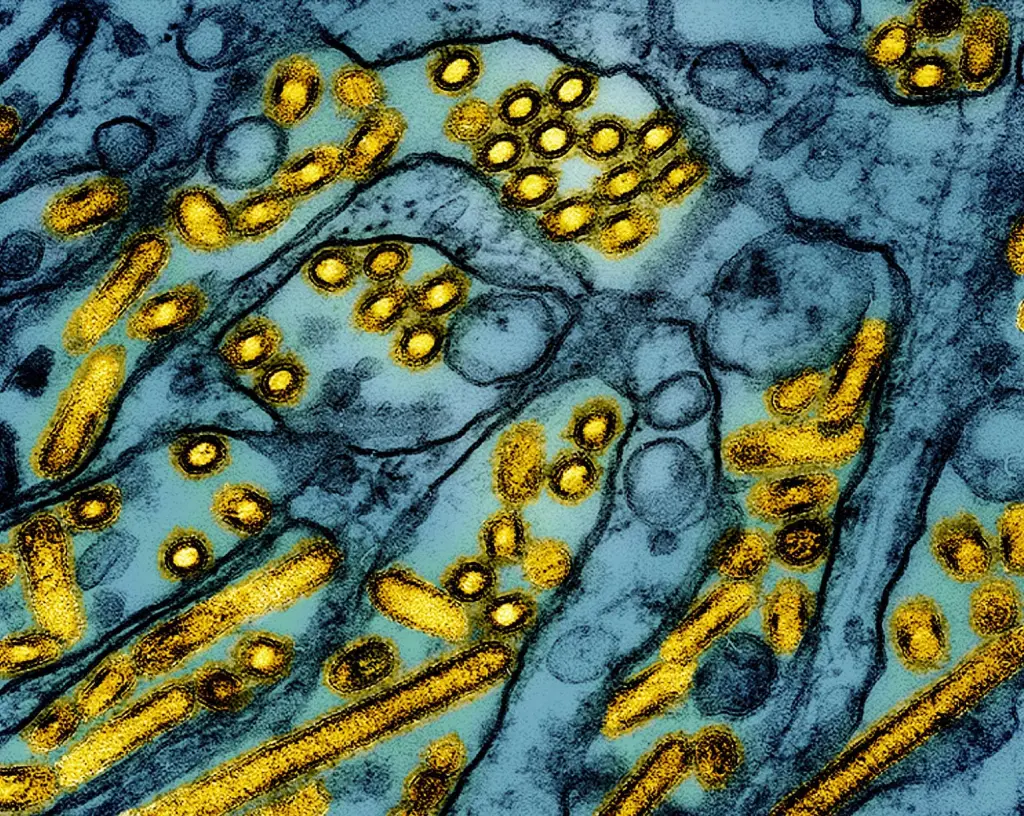Copyright Hartford Courant

As the United States still reels from the devastating economic toll of bird flu on the nation’s food supply, state officials are urging Connecticut poultry owners — both backyard and commercial — to remain vigilant and implement strong biosecurity practices to protect their flocks. “Fall migration brings an increased risk of exposure to avian influenza, particularly from wild waterfowl that can carry the virus without showing symptoms,” said State Veterinarian Dr. Thamus Morgan. “Whether you have a few hens in your backyard or manage a large commercial operation, biosecurity is your first line of defense.” Highly pathogenic avian influenza, or bird flu, continues to pose a serious threat to domestic poultry in Connecticut, according to officials. The virus is highly contagious and often fatal to birds. In recent years, bird flu outbreaks have caused significant economic losses across the country. In Connecticut, the last confirmed case was detected in a backyard flock in January. The virus was confirmed in two backyard flocks located in New London County and New Haven County both back in January, according to the Connecticut Department of Agriculture. The backyard flock in New London County consisted of chickens, ducks, and peacocks that were family pets, not commercial poultry, and had close contact with wild birds in a nearby pond, officials said. The announcement on Jan. 17, was the state’s first positive confirmation of the virus. “Regardless if you have two birds or two-thousand birds, we want you to remain vigilant,” said Agriculture Commissioner Bryan Hurlburt. “We have seen across the nation how impactful bird flu has been. So we want to make sure Connecticut residents and bird owners are doing everything they can to manage this.” Signs of H5N1 infection in poultry include sudden increase in bird deaths, sneezing, coughing, nasal discharge, watery or green diarrhea, lack of energy, poor appetite, drop in egg production, swelling around the eyes, neck, and head, and purple discoloration of wattles, combs, and legs. But not all birds display symptoms despite carrying the virus, Hurlburt said. “The current belief is that mallard ducks are the asymptomatic principle carriers. With that said, HPAI has been detected in many different species of birds that were not previously considered. Not all recipients of HPAI get sick and die. We strongly encourage that domestic birds are kept away from wild birds, in particular limiting their access to bodies of water where wild ducks might land,” according to a DOA spokesperson. No confirmed cases have been detected in people or livestock in Connecticut, Hurlbert said. The DEEP Wildlife Division and USDA Animal and Plant Health Inspection Service has been conducting targeted surveillance for bird flu since 2006, according to the agency. DEEP biologists test a sample of waterfowl each summer and winter during normal banding and research projects. They also do testing on certain bird mortality events if bird flu is suspected and for monitoring in raccoons, foxes, bobcats, and other mammals. But despite the threat to humans relatively low, officials say that properly cooked eggs, poultry, and pasteurized milk are safe to consume. “It’s better safe than sorry here, even if you see one or two dead birds that looks odd, we want to get out there and test those birds,” Hurlburt said. “So please call or email to get in contact with the Department of Agriculture, so we can do the assessment and get those birds tested. This helps us know how prevalent this is in the state so we can increase our risk protocols or at least have better information to inform our decisions.” Bird owners and the public are reminded that sick or dead birds, both wild and domestic, should not be picked up, brought home, or taken to a veterinarian or wildlife rehabilitator if displaying signs of H5N1 infection. Instead, backyard and commercial flock owners are encouraged to report anything unusual, especially sick or dead birds, to CT DoAg at 860-713-2505, ctstate.vet@ct.gov, or the USDA at 866-536-7593. Poultry owners are also encouraged to visit the U.S Department of Agriculture’s Defend the Flock Resource Center, which offers free tools, checklists, and videos to help implement effective biosecurity practices. Some reminders for poultry owners this fall include: Prevent contact with wild birds: Keep flocks indoors or under covered runs to avoid exposure to migratory birds. Limit visitors: Restrict access to poultry areas and require clean clothing and footwear for anyone entering. Clean and disinfect: Regularly sanitize coops, tools, and equipment. Monitor flock health: Report any signs of illness immediately. Secure feed and water: Keep them covered and inaccessible to wild birds and rodents. Stephen Underwood can be reached at sunderwood@courant.com



